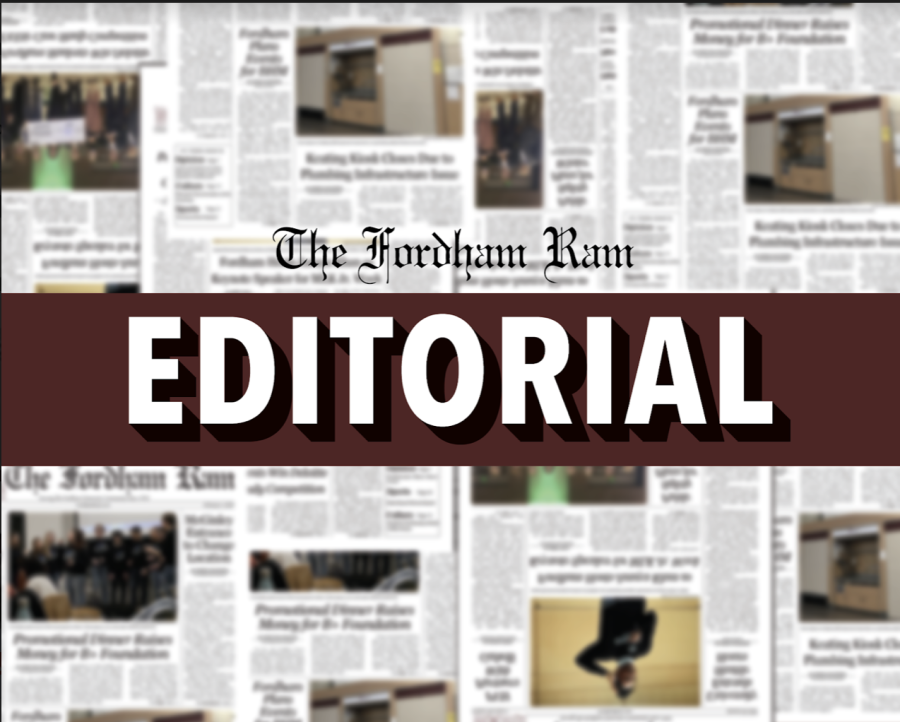Academic Integrity Is Under Siege
Plagiarism is a problem that has been plaguing universities for years. It is a point noted in every course syllabus and on every first day of class. The discussion of plagiarism has grown increasingly more important as students’ internet savvy has advanced over the past few decades, as it has never been easier for students to plagiarize based on information and work found on the internet. Universities and professors have outlined what is considered plagiarism in their class in areas such as group collaboration, online resources and print texts. However, there is a new issue that must be evaluated as whether or not not it fits the definition for plagiarism: AI technology.
In order to determine whether AI technology is a form of plagiarism, it is necessary to provide the definition of plagiarism that the Ram subscribes to: Plagiarism is any work or thought that is not original to the owner, but passed off as if it is. This includes any group collaboration where the collaborators are not cited, previous research found online not sourced or any portion of written work that is not created by the author and is without citation.
AI technology used to write portions of assignments, if not entire essays, for students falls within this definition. It is irrelevant if the source plagiarized is a sentient being or not. Work that has been produced by someone, or something, in this case, other than the author or creator and without proper recognition is plagiarism.
The technology being discussed that has the capability of producing full essays that sound as though a student wrote them is called ChatGPT. ChatGPT is AI technology designed specifically to generate text. This platform seems as though it was created to enable cheating as there doesn’t seem like there is another reason for needing a technology source that can write long portions of text based off of online resources. What good is this AI platform adding to the world?
ChatGPT is adding a watermark to AI-generated text from their platform to combat this problem. The watermark will not be detectable to the person using the platform, but will be for those looking for computer-generated text. It is a step in the right direction to add obstacles for students trying to use AI technology to plagiarize assignments, but why not go one step further and retire the platform altogether? There is no need for a platform that can write a whole essay and, quite frankly, it was naive to create this technology without the expectation that people would abuse its power to plagiarize.
It is important to note that it is also naive to think that one can use this technology without being caught. Every professor uses some sort of plagiarism-checking resource on work that students turn in. Plagiarism is a serious problem in academia and knowing that there are so many ways to plagiarize, it should also be expected that there are so many ways to catch it.
AI-assisted plagiarism prompts an additional problem in young adults today: a diminished work ethic. Technology like this only feeds into the reputation that young adults have of being lazy or not wanting to work. College is supposed to be a time of preparation for life post-graduation, and while that path can take a myriad of directions, all options require a semblance of motivation or a strong work ethic.
ChatGPT offers a way around learning how to self-motivate and takes away a learning opportunity. There will be times in the professional world where people are assigned a task or project that is not entirely interesting to them. Now is the time to practice internal motivation for a pay off in the long run.
Currently, Fordham’s academic integrity policy makes no mention of AI-assisted plagiarism. While the Ram believes using AI technology to forge assignments is plagiarism, it has yet to be defined as such at Fordham. This is to be expected as ChatGPT was only released for public use in December 2022. Nevertheless, it is now an imperative conversation for Fordham and other institutions to engage in as it does not seem like this platform will go away anytime soon.
Fordham, as well as other universities, need to reevaluate their definitions of academic integrity with the introduction of AI technology. As long as technology continues to evolve and become more accessible, the conversation of plagiarism will be ever evolving as well.











































































































































































































